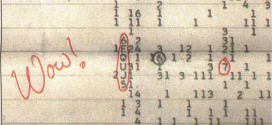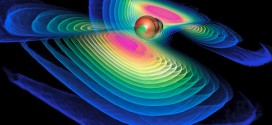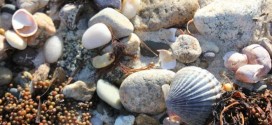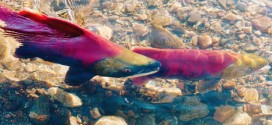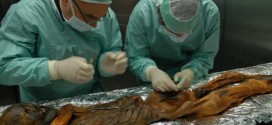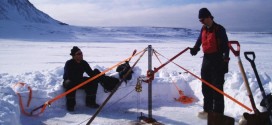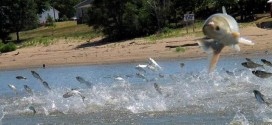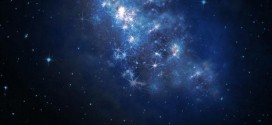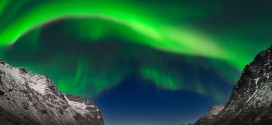On 15 August 1977, radio astronomers using the Big Ear radio telescope at Ohio State University picked up a powerful signal from space. Some believe it was our first interception of an alien broadcast. Now it seems something closer to home may have been the source: a pair of passing comets. The two comets 266P/Christensen and P/2008 Y2 (Gibbs) were …
Read More »Science
Gravitational wave rumors ripple through science world “Report”
Rumors of gravitational wave discovery is just that, source says. Gravity exists — anyone who has ever fallen on their ass and witnessed their dignity crash with it knows this to be a fact. How it works, however, has always remained a mystery. In 1915, Albert Einstein theorized that gravitational waves — which he described as ripples in spacetime — …
Read More »Here’s Why Seashells Don’t Have The Consistency Of Chalk, new Research
Seashells are surprisingly strong for being made out of the same material as chalk. Now, scientists are taking a closer look at how seashells get their strength from their own biological material. The results show that such clumps become incorporated via chemical interactions with atoms in the crystals, an unexpected mechanism based on previous understanding. By providing insight into the …
Read More »Scientists detect signs of salmon virus in British Columbia
A new scientific study shows that high concentrations of a variant of the most feared salmon virus in the world have been detected in Cultus Lake, near Chilliwack. The paper published by the Virology Journal confirmed the discovery of a new European strain of infectious salmon anemia virus (ISAV) after tests on more than 1,000 farmed and wild fish, including …
Read More »Otzi the Iceman May Have Suffered Stomach Bug, says new Research
Around 5,300 years ago, Otzi the Iceman was a man on the run. Showing signs of having been in a fight earlier, he seems to have been fleeing across the Italian Alps when he was brutally attacked, ending with Otzi bleeding out in the snow—as an arrow had pierced a major artery in his left arm. Now, a new team …
Read More »Researchers say humans have now brought on an entirely new geologic epoch
University of Alberta researcher Alexander Wolfe looks for clues about the past in fossils contained in rock layers and lake sediment. When he started finding plastic in his samples — so-called new “techno fossils” — he began to think times had changed in a big way. Characterized by the mantra “better living through chemistry,” the time immediately following the Second …
Read More »Chris Reynolds: Halifax bar owner drinks 130-year-old beer
Those who have tasted the contents of a 125-year-old bottle of Alexander Keith’s from the bottom of the Halifax Harbour say it tastes “pretty good.” The century-old bottle from A. Keith & Son Brewery, the precursor to Halifax-based Alexander Keith’s brewing company, was discovered in November by Jon Crouse on the bottom of Halifax harbour when he was scuba diving.
Read More »Asian Carp in Great Lakes Could Devastate Native Fish, says new Research
Asian carp have yet to establish a presence in the Great Lakes, but scientists have already begun researching the possible effects of an invasion by the non-native species. In a study recently published in the journal Transactions of the American Fisheries Society, researchers from the National Oceanic and Atmospheric Administration (NOAA) and the University of Michigan state that if Asian …
Read More »Periodic table’s seventh row is now complete: Four new elements added
Periodic table’s seventh row finally filled as four new elements are added. The International Union of Pure and Applied Chemistry (IUPAC) verified the new elements last week, which were discovered by scientists in the U.S., Japan and Russia. “The chemistry community is eager to see its most cherished table finally being completed down to the seventh row,” Professor Jan Reedijk, …
Read More »Scientists find new way to measure gravity of distant stars
Scientists have developed a new tool in the search for habitable planets in other solar systems by measuring the surface gravity of stars too distant to study with conventional methods. The new method has been developed by researchers at the University of British Columbia in Canada and University of Vienna in Austria. It will enable scientists to measure surface gravity …
Read More »Stunning Northern Lights outshine NYE fireworks (Picture)
Forget the New Year’s Eve fireworks, the real spectacle in the sky was the Northern Lights. The Aurora borealis is the collision between electrically-charged particles from the sun which enter earth’s atmosphere.
Read More » Canada Journal – News of the World Articles and videos to bring you the biggest Canadian news stories from across the country every day
Canada Journal – News of the World Articles and videos to bring you the biggest Canadian news stories from across the country every day
